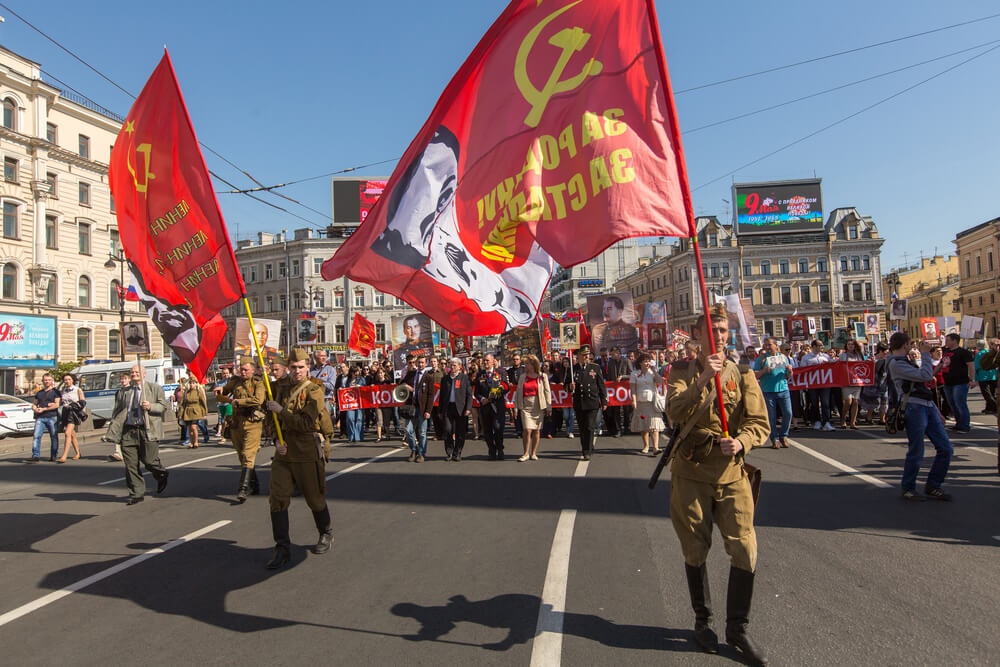"In view of the circumstances, President Putin will not be invited to take part in the commemorations of the Normandy landings", the Liberation Mission organising committee said a few weeks ago.
Behind the word "circumstance" lies a deep division about the historical legacy of the Second World War in Europe, which Russia created with its aggression against Ukraine.
The practical "circumstances" that prevented Putin from receiving an invitation to the 80th anniversary of the D-Day landings along the Normandy coast directly relate to the crime of aggression the Russian leader committed against Ukraine.
Furthermore, in March of last year, the International Criminal Court charged Putin for war crimes and issued an international arrest warrant for him.
On June 6, D-Day's 80th anniversary commemoration will mark the third consecutive year of war of such magnitude and impact in Europe, not seen since the fall of Nazism.
Only in the Western world has the commemoration of the landing of nearly 150,000 Allied soldiers in France, which marked a significant victory over Nazism, been a prominent event for numerous years. Russia holds the same commemoration about a month earlier, but every year it gets lonelier.
No point of contact
Europe, the USA, and other overseas allies on the one hand, and Russia on the other, have almost no room for a point of contact regarding victory in the Second World War.
However, their leaders from the 1940s worked towards a shared goal, but recent history has also changed the view of the hard and glorious days of eight decades ago.
The victors' estrangement from each other began years before the Russian invasion of Ukraine.
Vladimir Putin was a guest at the ceremony on the Normandy coast 10 years ago
The last time a US president attended the traditional Victory Day military parade in Moscow on May 9 was in 2005, the 60th anniversary of the end of the Second World War, when George W. Bush was a guest on Red Square.
Five years later, at the anniversary parade marking the 65th anniversary of the victory over Nazism, NATO troops marched across Red Square together with Russian troops for the first time, and German Chancellor Angela Merkel was in the audience.
Vladimir Putin was a guest at the ceremony on the Normandy coast 10 years ago, on the occasion of the 70th anniversary of the Allied landings.
A new standard
Those days are behind us. Putin's arrival in Normandy in 2014 came just a few months after his troops occupied Ukrainian Crimea, which Russia claimed as its territory.
“We can have differences with Vladimir Putin, but I don’t forget and will never forget that the Russian people gave millions of lives during World War II”, said the then president of France, François Hollande, defending himself from criticism that he had invited the leader of the aggression against Ukraine as a guest.
Since February 2022 and Russia's invasion of Ukraine, it has become unthinkable that one of the commemorations dedicated to the victory in the Second World War could take place with all the victors of that time.
Europe should adjust to the forthcoming D-Day commemoration as a standard in the years to come
In this respect, Europe should adjust to the forthcoming D-Day commemoration as a standard in the years to come.
At the same time, Moscow's commemoration of Victory Day in World War II will bring together, just like this month, the leaders of several former Soviet republics from Central Asia and a handful of Putin's allies. This year, guests from Cuba, Laos, and Guinea-Bissau were also present.
The instrumentalization of victory in the Second World War is one of the foundations of Putin's imperial policy towards his neighbours, including the aggression against Ukraine.
“History and memory are now being used, manipulated, and falsified by the Russian authorities”, said Professor Emilia Koustova from the University of Strasbourg.
Abused moral capital
The moral capital from the victory in the Second World War is Putin's source of support for the policies he has been pursuing for almost a quarter of a century. More than 25 million victims of the then Soviet Union, as a stake in the victory over Nazism, which the whole world appreciates, have been the basis of aggressive propaganda for years, often simply adjusting historical facts with current military endeavours.
In one of the speeches during the last May commemorations, Putin stated that in the first phase of the "Great Patriotic War," only Russia opposed Nazism while the rest of Europe helped Hitler.
 The moral capital from the victory in the Second World War is Putin's source of support for the policies he has been pursuing for almost a quarter of a century - St Petersburg Parade
The moral capital from the victory in the Second World War is Putin's source of support for the policies he has been pursuing for almost a quarter of a century - St Petersburg Parade
Putin's Russia regards European countries and NATO members as direct enemies because they have been helping to defend Ukraine.
This attitude, however, is also reflected in historical interpretations of the facts of the Second World War, making Russia one of the biggest revisionists of the victorious legacy of post-war Europe.
A new joint ceremony to celebrate the victory and the beginning of a new Europe will have to wait, even after Putin. The narrative he has established has profoundly perverted and altered the attitude of Russians to the facts of the Second World War and, in particular, to the role of Europe and its overseas allies in the final victory.